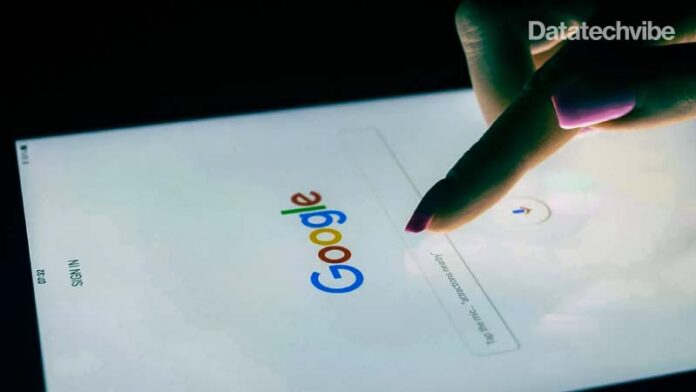Google is facing attacks on several fronts. The search giant has received blowback from lawmakers and antitrust prosecutors over allegedly anti-competitive practices. Washington has also harangued Google over its misinformation and child safety policies. The company’s artificial intelligence division is in turmoil, after high-profile terminations and resignations over diversity and ethics.
But there’s still a big bright spot for the company: Business is booming.
For the quarter ended March 31, Google parent Alphabet tallied $55.31 billion in sales, beating analyst estimates of $51.70 billion. Earnings per share were $26.29, smashing expectations of $15.82 per share, according to Refinitiv. Ad sales from its YouTube unit increased year over year, to $6 billion from $4 billion. The tech giant’s cloud unit, which rents server space and artificial intelligence technology to other companies and organisations, also grew over the past year as it sharply narrowed its losses. The division generated $4.04 billion in revenue, up from $2.77 billion.
‘People have turned to Google search, more than ever since the pandemic began’, Alphabet and Google CEO Sundar Pichai said on a conference call. ‘In some parts of the world, the economy began to rebound, which created a rising tide in the first quarter.’
Alphabet’s share price rose more than 5 per cent in after-hours trading.
The results further cement the theme that people turned to tech when the pandemic hit, and they never logged off. Whether it was running searches for which meal kits to purchase or burning time on YouTube, big tech — and Google specifically — played an increasingly entrenched role in our lives.
But while Google bolstered its business as people stayed home and used tech to stay connected, it’s ‘too early’ to tell if the trend will continue as the world reopens, CFO Ruth Porat said during the call. ‘It’s premature to assess how durable these consumer behaviours are’, she said.
The earnings report comes as Google has become a familiar presence at Capitol Hill hearing rooms. Alexandra Veitch, a YouTube government affairs director, joined executives from Facebook and Twitter at a Senate subcommittee hearing about the tech companies’ powerful algorithms. Last week, executives from Google and Apple testified before another Senate subcommittee over anticompetitive practices at their app stores.
Also Read: Invisible, Intelligent, Intrusive
More broadly, Google faces serious threats when it comes to antitrust. The company is the target of three major antitrust lawsuits, including a landmark case by the US Department of Justice, and another complaint by a bipartisan coalition of states.
Google has also been dealing with chaos in its artificial intelligence unit for several months. In December, Timnit Gebru, one of the few prominent Black women in the field, announced on Twitter that she had been fired over a research paper that called out risks for bias in AI, including in systems used by Google’s search engine.
The fallout from the situation led to Google’s firing of Margaret Mitchell, who co-led the company’s ethical AI unit with Gebru, after an investigation over data security. Samy Bengio, who managed Gebru and Mitchell and voiced support for them, resigned earlier this month.









